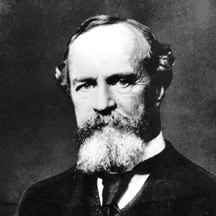Feeling at home in the universe
 Most people use philosophy to justify their beliefs. Others use it to
challenge accepted beliefs. In such a situation, what is the role of
philosophy? Are philosophers expected to explode age-old myths? Or are
they supposed to come out with a theory to support changing concepts and
social systems? Different philosophers have given diverse answers. If
you analyse the philosophies of the past few centuries, you will find
that most philosophers did not wish to upset the apple cart. Only a few
of them were bold enough to come up with an original idea. Most people use philosophy to justify their beliefs. Others use it to
challenge accepted beliefs. In such a situation, what is the role of
philosophy? Are philosophers expected to explode age-old myths? Or are
they supposed to come out with a theory to support changing concepts and
social systems? Different philosophers have given diverse answers. If
you analyse the philosophies of the past few centuries, you will find
that most philosophers did not wish to upset the apple cart. Only a few
of them were bold enough to come up with an original idea.
William James (1842-1910) was one such original thinker who was bold
enough to formulate his theory debunking some of the established
concepts. He advocated pragmatism, a philosophy that defines knowledge
and truth in terms of practical consequences. He rejected the idea that
philosophy was an intellectual exercise.
James saw the futility of such a system of philosophy. Therefore, he
believed that philosophy’s true purpose is to help us live in a complex
society. Instead of searching for objectively true universal beliefs he
searched for beliefs that work for most of us. As a result, his
philosophy instantly became provocative and vigorous.
Science
James was born at a time when science reigned supreme. Most people
were inspired by Charles Darwin’s Theory of Evolution that promised
never-ending improvement. Americans were eager to explore and expand
their physical and spiritual world. James captured the changing scene
cleverly and he soon became the most influential American philosopher of
his time.
|

William James: There can be no difference anywhere that
doesn’t make a difference elsewhere. |
Having studied chemistry at Harvard University, James focused his
attention on other science subjects such as biology, anatomy and
physiology. After exploring the frontiers of science, he decided to be a
philosopher, the last refuge of most intellectuals. Most of his
anxieties were dispelled when he came under the influence of the leading
French philosopher Charles Renouvier who said that with free will you
can hold on to one idea among a number of possibilities. James put into
practice what he learnt and steadfastly concentrated all his mental
energy on one idea.
James regarded philosophy as a matter of personal involvement, a
function of the will and a means to overcome despair. In fact, he
developed his philosophy to cope with his own life’ problems and
presented it in an appealing way to others. His pragmatism was a heroic
struggle, a philosophy of courage and action. What is more, his is a
philosophy of vibrant vitality. His own experience convinced him that
life was too complex to reduce to any one of the philosophical systems.
Instead of a theory he presented a method for marshalling the will.
Pragmatism
With a series of lectures at Harvard and Columbia Universities, James
established himself as an authority on pragmatism. His eminent students
included Supreme Court Justice Oliver Wendell Holmes, Teddy Roosevelt,
eminent author Gertrude Stein and philosopher George Santayana. Out of
them, he particularly disliked Roosevelt and Santayana.
When he retired at 65, James’s pragmatism came to be criticised for
its lack of systematic explanation of his ideas. To counter the
criticism, he wrote The Meaning of Truth and A Pluralistic Universe.
However, they were not considered to be the logical conclusion of his
theory.
Today James is remembered for his yearning for a philosophy free of
“meaningful abstractions.” As a leading philosopher put it, James made
pragmatism into a kind of philosophical religion. He always talked about
“feeling at home in the universe.” He presented pragmatism as a method
of solving the problems that interfere with that feeling. He also looked
for the “cash value” of statements and rejected philosophy that lacked
it.
Precision
James’s pragmatism has been criticised for being “philosophically
crude” and for its indifference to theoretical precision and
consistency. However, we can expect precision and consistency in science
and medicine and not in philosophy.
Apart from his pragmatism, James believed that life without a heroic
struggle is dull, mediocre and empty. For instance, some employees in
low-paid jobs continue to do so for want of safety, security and
compliance. However, those who venture out deliberately take risks to
better their future prospects. James never expected anybody to take
unnecessary risks. He wanted us to fight our way for something
important. He believed that the strenuous mood is superior to drifting
along like dead wood. He envisaged an active, strenuous approach that
would be healthier and self-fulfilling than a passive role. |

